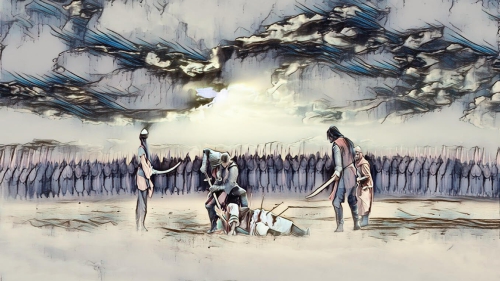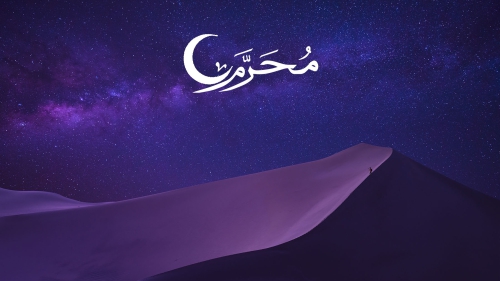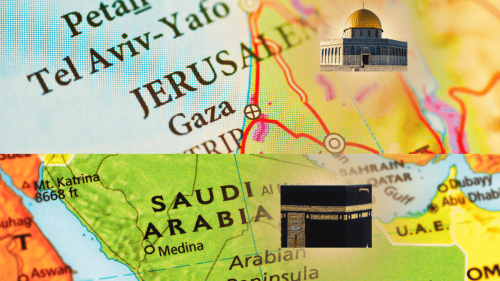The Validity of Socrates’ Inquiry Method

Socrates (d. 399 BC) was one of the most prominent and, at the same time, most controversial Greek philosophers. He was something of an abiding mystery too.
An outstanding aspect of Socrates’ philosophy was ethics. But unlike some other great teachers of ethics, he did not instruct people how to live their ethical lives. Rather, he promoted a method of inquiry, inviting people to examine their beliefs as well as behavioral patterns.
Socrates wanted his audience to know what they thought they had known, to really believe in what they thought they had believed in, and to then conduct themselves only per the truths obtained from the first two procedures. Positively, people must be the masters and owners of their ethical destinies.
To Socrates, ethics was the object, the only path to which was knowledge. Thus, it would be counterproductive to concentrate solely on the world of ethics, but neglect – or even worse, to distort – the path leading to it.
One of the best ways to publicize the importance of knowledge and to eventually fuse it with ethics is to keep asking and probing concerning everything people had faith in and were doing in the name of moral values and to keep cross-examining representatives of established behavioral paradigms and systems.
This way, both truth and its antitheses were bound to come to the fore, in which case people’s discernment will increase, enabling them to make better choices. Processes of questioning denoted a sword that cut through and separated the opposing realms. In such a case the proponents of the truth had nothing to worry about, for there was naught that could undermine or diminish the truth. On the contrary, all attempts were destined to reinforce the truth one way or another – such were its intrinsic nature and power.
The problem was with the manifestations and advocates of falsehood. So fragile and unreal were its foundations that absolutely nothing in relation to inquests and critical thinking could stand it in good stead. If questioning was a companion of the truth, it, by the same token, was an adversary of falsehood. Untruths and bogus forms of knowledge dreaded examinations and probes.
That is why if a person bragged about knowing or practicing a virtue, Socrates would guide him step by step, utilizing his systematic inquiry method, to the point where it would become apparent that a person’s knowledge and perceptions were either wrong or inadequate.
Socrates believed that knowledge was the cause and ethics the effect. They were integral parts of a whole. Hence, it was impossible for an ignorant or misguided person to be ethical, just as it was impossible for a knowledgeable person to be unethical.
Socrates accordingly thought that “virtue is something that can be known and that the virtuous person is the one who knows what virtue is.” Socrates is also reported to have said that “the unexamined life is not worth living” (Encyclopedia Britannica; Stanford Encyclopedia of Philosophy).
In his discussions, Socrates constantly asked for the definitions of virtues, which to him had to be tripartite: rational (actual conditions of mind), positively functional or applied (conditions of being), and forming vital aspects of the human character or personality (conditions of the soul). Socrates objected to definitions that made virtues some external aspects of a virtuous action, or simply the doing of specific types of action described in terms of their external circumstances. “He also objected to more psychological definitions that located a virtue in some non-rational and non-cognitive aspect of the soul”
(John M. Cooper, https://www.muslimphilosophy.com/ip/rep/A108).
The “Wrongdoings” of Socrates
While exposing sham knowledge as real ignorance, and while humbling false virtues originating from the former, Socrates claimed for himself “no knowledge beyond the capital fact that he knew nothing.” It is no surprise therefore that the following two quotes are customarily ascribed to him: “I know that I know nothing”, and “If I am the wisest man alive, it is for I know one thing, and that is that I know nothing.”
What Socrates meant by this is that knowledge is both real and attainable. His admission of ignorance was constructive and encouraging. It was the first step in the right direction, the direction of seeking and attaining authentic knowledge, which in turn will ensure, plus facilitate, an equally authentic ethical way of life.
Thus, “the whole duty of man was comprised in the struggle toward that real knowledge which alone gives the power to do right.” Knowledge and virtue, it goes without saying, were twins. Virtue was a form of knowledge, and knowledge, in turn, was a virtue par excellence (Encyclopedia Britannica; Stanford Encyclopedia of Philosophy).
Socrates elaborated: “All virtues were essentially forms of knowledge, and were based upon the understanding of some class of things. This involved the final identification of virtue in general with understanding. If virtue is understanding, it follows that no one does wrong knowingly; men sin only insofar as they are in ignorance of what is right. Α man who knows the right, who has real knowledge, will do the right, for then that knowledge will be stronger within him than any desire. Naturally the standard of this genuine knowledge is not arbitrary, nor is it borrowed from anything outside of the soul” (Plato’s Apology of Socrates and Crito).
Socrates swam against the current, disagreeing with the prevalent-cum-official opinions and challenging the popular perspectives - all in the name of his righteousness and philosophical principles. He knew that he was tempting fate by locking horns with conventions and laws, together with officials standing behind them. Hardly surprising that he in the end was declared a public enemy. As an opponent of a great many institutionalized orthodox beliefs and traditions of Athens, Socrates was proving a nuisance not only for individuals but also for the systems and their establishments. His peril, while growing both in scope and influence, simply refused to go away.
Finally, Socrates was charged with the “crimes” of apostasy or impiety (desecration and mockery of national gods) and with such as were relatable to the corruption of the (minds, souls, and demeanors) of the youth of Athens. As a consequence, he was tried, convicted, imprisoned, and executed.
Obviously, there was more to the case of Socrates than what can be gleaned at a first glance. Some people stop at the officially articulated charges, for that is a sure thing that emerges from the mystery of Socrates or what is called the Socratic problem or question. Others, however, go a step further and posit that the charges against Socrates were politically motivated and were intended to do away with elements of growing dissidence, with Socrates being not merely one of the nonconformists, but also one of the instigators. Accordingly, Socrates was not tried because he disagreed with the democratic principles of the regime, nor was he killed by the envy and resentment of the democratic mob. Those were decoys, aiming to obscure the truth or to perpetuate the Socrates enigma.
Yet Shadia B. Drury attempted to put a new – and further intriguing - spin on the subject matter when she wrote that Socrates was “prosecuted because he was the teacher of Alcibiades, Critias, and Charmides. Three men who played leading roles in the defeat of Athens in the Peloponnesian war, the oligarchic coup of 404 BC, and the reign of terror that followed. The prosecution was not motivated so much by revenge, as by fear for the future of Athens, in view of his (Socrates’) radicalizing influence and its potentially calamitous results” (The Political Case Against Socrates).
That there was something seriously suspicious testify the words of Xenophon, one of Socrates’ students, to the effect that he was astonished at the verity that the Athenians had been persuaded that Socrates was a freethinker and an apostate, whereas the reality attested to the contrary. Socrates was innocent, or at least encouragingly different. Xenophon wondered how such a circumstance was possible when Socrates had never said or done anything in opposition to sound (national) religion, and his utterances about the gods and his behavior towards them had been the words and actions of a man who was truly religious and deserved to be thought so (Xenophon’s Memorabilia, Oeconomicus, Symposium, and Apology).
The Everlasting Advantages of the Inquiry Method
It must be admitted that the celebrated inquiry method of Socrates never stopped giving. Its benefits are infinite and could be used at any time and in any circumstances. The reason is that every human being is endowed with the five senses, intellect, intuition, and the fitrah (original and innate pure disposition or constitution). These are powerful agencies in every human being and can lead a person rather far. They naturally abhor falsehood and absurdities.
It is true that these agencies are governed by the authority of the revelation of Almighty God, which is the only source that can get man across the line and into all truth, but if used aright the same agencies can guide man as far as to the threshold of the truth, which, when all is said and done, is a remarkable achievement. They are also prerequisites for the proper actualization and application of the revelation itself.
Thus, the inquiry method can work as much with believers as non-believers. The method is bound to keep everyone on his toes, for it requires every perception and every course of action to be founded upon the premises of common sense, sound rationality, honesty, and realism. Constantly asking sincere questions while seeking sincere answers will enforce the inherent capacities of a person and will keep him on guard against the agents bent on undermining the former.
Questions can make a believer a better and more committed servant of his Creator while rendering non-believers confused, restless, and thirsty for answers, which in turn can jumpstart him onto the journey of spiritual discovery. This is so because questions fortify the truth and the faith of believers, and simultaneously destabilize and even rip to pieces disbelief. People are created to find and live the truth, not to alienate themselves from it. People as a creation are furthermore created to worship their Creator, not to live obliviously and baffled, or to be worshipped.
It follows that believers have nothing against inquiries and probes; non-believers dread them. Self-examination is a virtue, heedlessness is a failing. Such is the nature of the truth that nothing can harm it. On the contrary, everything hurled at its edifice only strengthens it. Whereas the nature of non-belief is such that sometimes as little as a simple question can cause havoc.
Nothing can rationalize nor justify idolatry, atheism, polytheism, paganism, paradox of the holy trinity, religious nationalism, and exclusivism, and all the somewhat contemporary ideologies of materialism, nihilism, hedonism, and agnosticism. None of these stand a chance of surviving a meticulous inquiry method. To be fair, especially to some modern forms of non-belief, they too encourage the asking and investigating procedures, making the idiom “question everything” their official mantra, however, such is misleading. They certainly do but only within the framework of their own preconceived ideas and according to their prejudiced standards. The rule is that others are to be questioned, except non-belief itself which is untouchable and “holy.”
For illustrative purposes, the Quran is often criticized and repudiated without reading, let alone studying, it; Prophet Muhammad is vilified without studying his authentic biographies; Islam in general is condemned and fought against without trying to understand it on the basis of its spiritual, intellectual and historical authoritative references. In most cases, as an alternative, it is the media outlets with shattered integrity and an array of dishonest politicians, journalists, and scholars – both Muslim and non-Muslim – that are taken as frames of reference. Surely, there is nothing honorable, nor scientific, in this tactic.
Non-belief can be championed only when those inherent human agencies or capacities are either distorted or completely paralyzed. In the same vein, it is only spiritual obscurity, moral insensibility and intellectual myopia that can sanction the rejection of the truth and exchange it for some tawdry vague and man-concocted alternatives. It stands to reason that a form of the Socratic inquiry method could prove extremely useful in this connection. It could be the antidote to the delusions.
For example, it is undeniably true that neither sound mind nor pure human fitrah can be compatible with such notions as those asserting that this perfectly executed and perfectly functioning life is meaningless and purposeless, that this life and everything in it is the result of a series of mere coincidences, that man’s existence too is no more than an accident and man himself just an advanced breed of monkeys, that the highest existential ideal and hence the sole objective of existence is the pursuit of physical pleasure, that matter is all that exists, that there are multitudes of gods and goddesses and demigods and demigoddesses, and that god(s) should be humanized (anthropomorphized) and man deified.
For this reason, does the Quran lay emphasis on the fact that the root cause of all forms of non-belief as well as polytheism is ignorance caused by the lack of sense and the “abuse” of reason or intelligence. “They do not reason” and “they do not understand” are the Quranic repetitive indictments of those who, for one motive or another, reject the truth. This type of ignorance is contagious and can eventually incapacitate the rest of man’s capabilities – yet his entire ontological being - turning a person into a breeding ground for all sorts of wickedness and sin. Such people in the sight of the Quranic message are “deaf, dumb and blind, and cannot regain their senses” (al-Baqarah:18).
In another place, the Quran describes this category of people thus: “They have hearts with which they do not understand, they have eyes with which they do not see, and they have ears with which they do not hear. Those are like livestock; rather, they are more astray. It is they who are the heedless” (al-A’raf:179).
Also: “So have they not travelled through the earth and have hearts by which to reason and ears by which to hear? For indeed, it is not eyes that are blinded, but blinded are the hearts which are within the breasts” (al-Hajj, 46).
In order to bring those persons to their senses, the Quran often resorts to advanced types of inquiry methods. Which means that it is the Quranic style that, as part of giving answers and providing guidance, questions are posed. Questions are sometimes specific and probing and at other times reflective, thought-provoking, rhetorical, and suppositional. It is intended thereby that a listener be not only informed or taught but also made fully aware of and made fully understand what and why he is being informed and taught. Thus, the realization process is turned into self-realization and the process of learning into a self-originated and self-directed development program. There are numerous studies that sought to explain the approaches of the Quran to the subject matter of this method and how much those approaches could impact human creative and critical thinking, demonstrating how serious the Quran is about it and its potential.
Every person is to constantly ask himself why he is what he is: whether he is a Christian, Jew, Hindu, Buddhist, skeptic, atheist, agnostic, etc., either because that status of his is the result of his own learned inquiries and investigations, or simply because that is how he has been raised and indoctrinated, or because that is part of his culture, or because that is a socially and politically correct choice, or because if not, what else he could be. In other words, one is to ask if he is what he is because he or somebody else so wanted. In fairness to the ramifications of the truth, Muslims too ought to ask similar questions. Their following of Islam should only be due to cognizant and enlightened personal choices.
Since the term “freedom” is the refrain of the modern man, questioning like so alludes to the most critical field where authentic freedom is pursued and practiced. Indeed, freedom is what one feels and lives through by means of his entire being, rather than what one says, often unconsciously and in a parrot-fashion. On a regular basis, people tend to enslave themselves in the interests of myriads of constructed traditions, cultures, and mores.
It is rightly said that people live and die with the choices they make. Moreover, their ultimate fate in the Hereafter will be determined only by those choices. Therefore, it is only sensible that the choices are made exclusively by the individuals concerned, intendedly, in full awareness and without regrets. Life is a serious business and must be treated as such. It cannot be based on a bunch of theories, conjectures, and half-truths. Its élan vital is the supremacy of productive inquiry formulas.
Small wonder, therefore, the Quran reveals that on the Day of Judgment, the Hell-bound occupants will admit that their tragedy was owing to their failure, first, to listen and, second, to use their intelligence (al-Mulk:10). “To listen” has been used first because it implies listening to and following the prophets and the divine revelations given to them. If a person does this, everything else quickly falls into place.
However, if a person does not “listen” but uses his intelligence properly, he will be directed, sooner or later, to the need and appropriateness of “listening”, in that intelligence alone cannot guide a person completely, but can bring him to the brink where the prophets and God’s revelations beckon, taking over the proceedings. Afterwards, human intelligence still plays a role but remains second fiddle to the former.
Along the same lines, it is normally said that the people of the fitrah (that is, the people who have died without ever hearing about Islam, the Prophet, and the Quran, or without ever hearing about them in the correct form) will not be punished on the Day of Judgement and their case will be surrendered to the will of their Creator. However, those people will still have to answer how they handled the God-given gifts of the five senses, intellect, intuition, and the innate pure disposition, and why the functions of these have not been channeled towards a life-long quest for the truth. In other words, they will have to answer how they ended up living as non-believers with all those heavenly gifts on board.
















